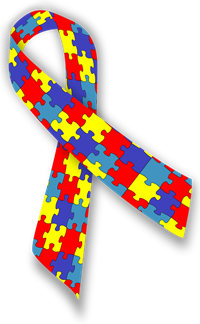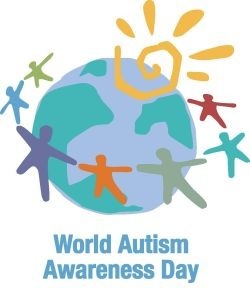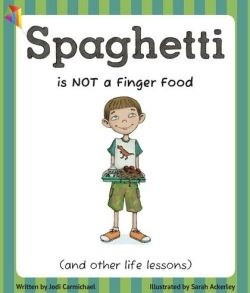 Yesterday, during the Today Show, Savannah Guthrie hosted a segment where they discussed some new details about the Newtown shooter. (NOTE: I refer to him as thus because I don’t want to give him any more fame.) Four minutes into the segment, she said this:
Yesterday, during the Today Show, Savannah Guthrie hosted a segment where they discussed some new details about the Newtown shooter. (NOTE: I refer to him as thus because I don’t want to give him any more fame.) Four minutes into the segment, she said this:
"Josh, there has been a lot of talk that he may have had Asperger’s."
Sigh. Here we go again.
Just after the Newtown shooting, people were desperate to find out information on the killer. Any little nugget of information would do no matter how trivial. If it set him apart from "normal people" then all the better. During one interview, the killer’s brother mentioned that he might have had Asperger’s Syndrome.
Suddenly, news organizations began asking "Did Asperger’s cause him to do this?" After all, people with Asperger’s Syndrome are highly anti-social, lack feelings and empathy, are highly obsessive, and are prone to violent outbursts, right? Just like a killer would be.
There’s only one problem: It’s not true.
Many, many other people have covered the reasons behind this. I thought about blogging it but figured it was well covered ground. (Besides, I covered this myself after the Aurora shootings when some people blamed Asperger’s. At the time, we hadn’t mentioned our son’s diagnosis publicly.) Savannah’s mention of Asperger’s in relation to the shooting shows that there are still those who think Asperger’s = Potential Killer. Clearly, the more education the better.
Craving The Spotlight Then Blinded By The Spotlight
First of all, people with Asperger’s Syndrome aren’t anti-social. We Aspies actually tend to want to socialize a lot. The problem is that we don’t instinctively know the rules for socialization. What others "just get", we have to simulate by remembering and applying tons of rules on the fly.
Imagine going to a strange country with a strange language. If you needed to ask for something but could only remember individual words, you could string words together to make yourself understood. ("Milkshake banana please would like I.") Still, you’d be seen as highly awkward in your speech pattern compared to natives who knew the language inside and out.
In addition, Aspies have a tough time picking up on non-verbal and non-literal cues. These can make up 70% or more of a conversation. For example, suppose you said "Joe just got his girlfriend a ring for her birthday. She really loved it." You might roll your eyes and emphasis "really loved" to indicate sarcasm. Someone not on the spectrum would pick up on this and understand that she thought the ring wasn’t very nice. Someone with Asperger’s would think Joe’s girlfriend was happy with him. Otherwise, why would you say that she really loved it?
To simulate this, imagine instead that 70% of the letters in this blog post were missing. How successful would you be in reading it? Even if I provided dashes where the letters should go, a luxury that Aspies don’t have, it would be nearly impossible. A—- -l-, -i–o– m-s- — –e -e–e–, –u- a—-g- –n—c- -i– —o– c—–t–y -n–a–b-e. (Translation: "After all, without most of the letters, your average sentence will become completely unreadable.")
All of those rules to remember and blanks to fill in (along with other issues such as problems filtering out background noise or issues with loud noises) can make socializing mentally taxing. So while people with Asperger’s might want to socialize, they find it hard to do so. It’s much easier to sit on the social sidelines wishing you could be part of the game. When I was in high school, I always pictured it as craving the spotlight, only to find it blinding when in it.
Killers, on the other hand, are anti-social not because they don’t know the "rules of the road", but because they hate people completely. Aspies don’t feel like this at all, but, sadly, many neurotypicals (those without Autism Spectrum Disorder, NTs for short) don’t see the distinction.
Aspies Feel Deeply and Intensely
A big myth about Asperger’s (and Autism in general) is that those on the spectrum lack empathy or are cold and emotionless. This couldn’t be further from the truth. Remember those blank dashes? Well, they work against Aspies here as well. Aspies have a hard time telling a person’s emotional state without them explicitly stating it. This means that it is easy for an Aspie to make an NT upset without meaning to. Once they realize how the person feels, however, Aspies will feel highly upset over causing such hurt.
In fact, this can feed into the "anti-social" aspect of Asperger’s. If you socialize, you risk hurting someone badly (emotionally). Why take the risk? Why not avoid people and thus avoid hurting people? Contrast this with a disturbed individual who find pleasure in hurting people. Which is more likely to go on a killing spree?
What You Call Obsession, I Call A Special Interest
Many Aspies have what some NTs might call obsessions. They aren’t true obsessions, however, but rather special interests that Aspies love. Other people have interests like these too. Some might build model airplanes. Some might knit. Some might read books. Aspies, however, tend to go all in when it comes to their interests. Instead of building a model airplane, they’ll make sure it is perfectly accurate and know all of the historical facts about each one. Instead of knitting, they’ll know every type of yarn and needle by heart as well as which is best of which project and will design their own patterns from scratch. Instead of merely reading books, Aspies will focus on a subject, say Dinosaurs, and read everything they could possibly get their hands on regarding that topic. Remember "Aspies Feel Deeply and Intensely" from the last section? Well, in this section if means that our interests are deeper and more intense as well. In the end, though, they’re just interests, not unhealthy obsessions like one might find in a killer.
Reactive, Not Planned
Can someone with Asperger’s be violent? Yes, of course. But so can any person, whether on the Autism Spectrum or not. If someone is violent and has green eyes, you wouldn’t claim that their green eyes are what caused the violence. The same goes for Asperger’s.
The Newtown shooter cased the school for weeks, planned his crime, shot his mother, loaded her guns in the car, drove to the school, and followed his plan to maximize his killing. This level of planning is completely the opposite of the kind of violence that someone with Asperger’s is likely to exhibit.
An Aspie’s violence (again, IF they come… not all Aspies experience this) aren’t planned. They are blind, reactive strikes due to feeling intense frustration and anger and not knowing how to properly express this feeling. The violence, in this case, is likely going to be limited to pushing or hitting. If the Aspie is given time and space to calm down, they will feel highly embarrassed and saddened over what they did.
In fact, people with Asperger’s are more likely to be the victims of violence instead of the perpetrators. Bullying is a big problem for those with Asperger’s. Bullies love to pick on those who are different and "doesn’t understand how to socialize" certainly qualifies.
The Truth and Damaging Lies
Asperger’s is not a disease. It’s not a mental illness. It doesn’t lead people to become killers. Asperger’s Syndrome is a high-functioning version of Autism which, in turn, is a developmental disorder. People with Asperger’s might think differently than neurotypicals, but – at their core – they aren’t so different.
Spreading lies about Asperger’s being a reason for a killer’s actions only adds meaningless sensationalism to a news story and exposes Aspies to danger. After initial stories about the killer’s alleged Asperger’s hit, some people began to fear those on the spectrum. Facebook groups calling for Aspies to be rounded up and (if the group was feeling generous) locked away were formed. One group asked for a certain number of likes, after which they would set a kid with Asperger’s on fire. (I’m not sure who is the worst here: The people who formed this group of the people who liked it before Facebook removed the group.) In one mall, a child who was known to have Asperger’s was tackled and beaten up – because his hand was in his pocket and they feared he had a gun.
These are the kinds of actions that people like Savannah Guthrie inspire when they continue mentioning Asperger’s when the topic of the Newtown shooter comes up. This apparently isn’t the first time that Savannah has mentioned this, but I implore her to make it her last. She should do some research into what Asperger’s really is, meet some people with Asperger’s Syndrome, and host a segment where some myths are busted about Autism Spectrum Disorder – including the one that she herself perpetuated.
Here’s hoping that long, explanatory articles like this one won’t be needed in the near future.
NOTE: The Autism Awareness ribbon icon above was created by Melesse and comes from Wikimedia Commons.

 Autism Awareness Month (April) and Autism Awareness Day (April 2nd) have been celebrated for many years, but it is taking on special meaning for us this year. That’s because, this past year, we finally got a diagnosis on NHL. Yes, NHL is an Aspie. What’s more, I’m an Aspie as well (albeit, undiagnosed).
Autism Awareness Month (April) and Autism Awareness Day (April 2nd) have been celebrated for many years, but it is taking on special meaning for us this year. That’s because, this past year, we finally got a diagnosis on NHL. Yes, NHL is an Aspie. What’s more, I’m an Aspie as well (albeit, undiagnosed).
 There are many blog posts, books, and articles written about parenting a child with Asperger’s Syndrome. There isn’t much written, however, about parenting a child while HAVING Asperger’s. Children can be a challenge all by themselves. When you add in a parent who gets overstimulated, fixated on things, and thinks literally, the challenges are vastly multiplied.
There are many blog posts, books, and articles written about parenting a child with Asperger’s Syndrome. There isn’t much written, however, about parenting a child while HAVING Asperger’s. Children can be a challenge all by themselves. When you add in a parent who gets overstimulated, fixated on things, and thinks literally, the challenges are vastly multiplied. When you get an Asperger’s Syndrome diagnosis, one of the first things you do is go on a quest for information. Thankfully, there are a lot of resources out there. Here are a few of the ones we have found over our time.
When you get an Asperger’s Syndrome diagnosis, one of the first things you do is go on a quest for information. Thankfully, there are a lot of resources out there. Here are a few of the ones we have found over our time.  Ever since NHL was diagnosed with Asperger’s Syndrome, I’ve been on the lookout for books, TV shows, and other places where Asperger’s was covered. So when I heard about Spaghetti is NOT a Finger Food by Jodi Carmichael, I knew I had to read it.
Ever since NHL was diagnosed with Asperger’s Syndrome, I’ve been on the lookout for books, TV shows, and other places where Asperger’s was covered. So when I heard about Spaghetti is NOT a Finger Food by Jodi Carmichael, I knew I had to read it.